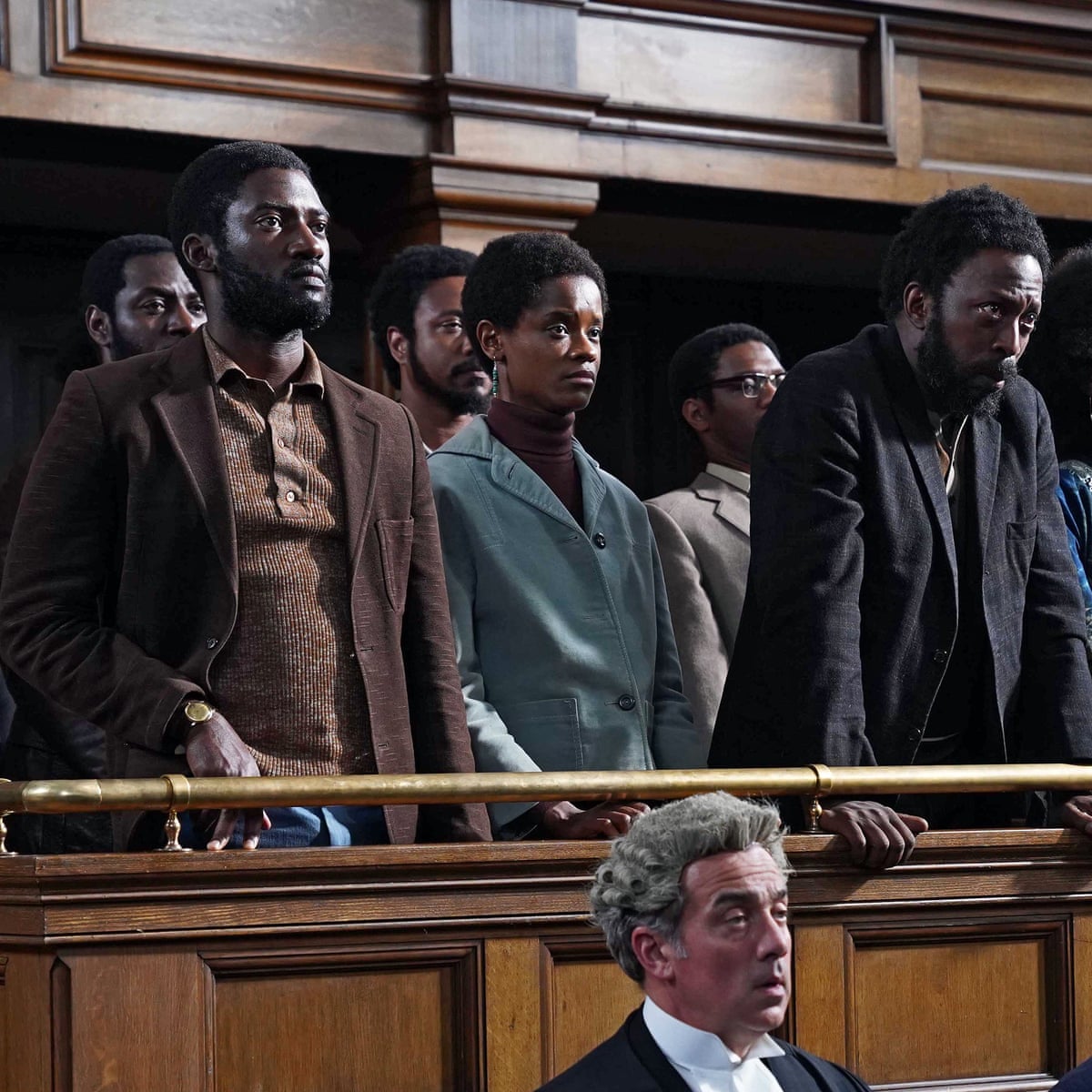When you think of the great filmmakers of the last decade, who comes to mind? Jordan Peele, sure. Greta Gerwig, 100%. Ryan Coogler, totes. Damien Chazelle. La la love it. Most people probably forgot about Steve McQueen, who at this point also comes up runner up in the best Steve McQueen race. I will say, the joke might be on all of these people, including #1 Steve McQueen, because the talented director already has a movie on my all time list, plus a criminally underrated crime thriller. And now, he goes back home, telling a 5 movie arc about life in England. Mangrove, the first film in McQueen’s Small Axe arc, shows what makes McQueen’s work excellent, crafting his own version of the Trial of the Chicago 7 for the Mangrove Nine.
The origins of the famous Mangrove Nine case in London start at the Mangrove, a Caribbean restaurant run by Frank Crichlow (Shaun Parkes) in Notting Hill. Now this is not Julia Robert’s Notting Hill: in the 1960s it was the center of black culture in London: a meeting place for black people to be comfortable and relax. Supposedly that is, because the English police decide it is a place that “harbors criminals” and begin routine raids on the property, disrupting the business. Coming to Frank’s aid are the Black Panthers, led by Altheia Jones-LeCointe (Letitia Wright, nice casting Mr. McQueen), Barbara Beese (Rochenda Sandall), and Darcus Howe (Malachi Kirby), who decide the best thing to do is protest the Metropolitan Police. Instigated into defending themselves, Howe, Crichlow, Beese, and Jones-LeCointe, along with Rupert Boyce, Rhodan Gordon, Anthony Innis, Rothwell Kentish, and Godfrey Millett, are charged with instigating a riot, a serious criminal defense, for which they are forced to defend themselves in Britsh Court.
It’s pretty funny that two “violent protest leads to prejudiced lawsuit” movies came out so close to one another. But while Aaron Sorkin’s movie focuses more on the trial, Steve McQueen’s movie is fueled by righteous anger, going right for the jugular of England’s recent racist past. McQueen does NOT sugar coat the overt racism of the Metro Police, and how much Crichlow suffered as a result: rescinded liquor license, diminished business, for example. Backed into a corner, he reluctantly takes help from the Panthers, and slowly starts to embrace their message of uniting for justice and for their collective future in England. All that pent up anger leads to the protest, which the racist police officers use as an excuse to cause a little violence and most importantly, punish the black community leaders: the Mangrove 9. Now, all that unreleased anger goes to sniping at each other in trial prep, as each individual takes different plans of action into court, which the police hope will divide the nine and make them easier to systemically beat down like they usually do.
But that’s the tough part of trying to undo systemic racism right? You’ve got to rally a bunch of people with different motivators to a common cause, like, say, nine people in a court case that you hope don’t take a plea to hopefully get some justice. McQueen gives us just enough backstory on the main group so we can see that inherent conflict coming. Altheia and Darcus were so in, they chose to represent themselves at trial. But Frank, Barbara and the others? Represented by other British lawyers of various ages, because Frank has a restaurant and Barbara has a baby, and both are worried about those things outside of the fight for justice. And, as McQueen shows, if you don’t unite in your fight for systemic justice, no one learns anything and society doesn’t progress. Conversely, McQueen also shows nine different perspectives, if they decide to band together, can actually affect change though their collective will and ability to navigate the British justice system. Darcus has the biggest breakthrough in destroying the prosecution’s defense, simply because he was studying how to be a lawyer at his desk. Altheia representing herself can then show in her own voice how sinister the Metro police actions are too the jury. And when the judge maybe wishes to quiet her down, the legal representation Frank/Barbara hired can use their knowledge of the law to overthrow corrupt historical parts of the legal system. On the surface you’d say that would stand a hard chance of working, but through McQueen’s direction, we can see how all of these pieces working together with one goal in mind can be that Small Axe McQueen is talking about in this film series.
That Small Axe line comes from Jamaican proverbs, made popular by Bob Marley, who said “If you are the big tree, we are the small axe, Ready to cut you down.” As a first part of a larger series, Mangrove makes a lot of sense, staring with an obviously cruel world, and beginning the steps to progress to a more inclusive, better one. Given McQueen’s history, I imagine these films are going to get better and better, making this whole series a potential masterpiece in the making. I for one, am excited to get in early to see where this goes. Let the small axe’s chop!

